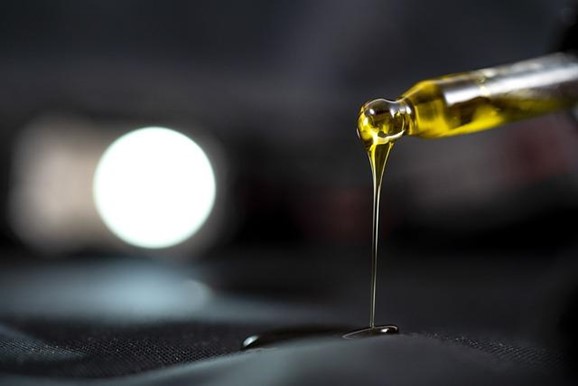The passage of the Farm Bill in 2018 signaled a tremendous shift in the cannabis’ legal landscape, triggering an unprecedented demand for marijuana products in what has since been christened ‘the green rush.’
The enactment of the 2018 Farm bill subsequently legalized the production of industrial hemp in all US states and territories. It specifically decriminalized hemp-derived cannabidiol (CBD) products that contain a maximum tetrahydrocannabinol (THC) potency of 0.3%.
While cannabidiol users were the biggest beneficiaries of this historic legislation, consumers of Hennepzaadolie had something significant to write home about, too. But what’s the difference between CBD and hennepzaadolie (hemp seed oil in English)?
This post shall demystify that question as we delve into how hennepzaadolie (hemp seed oil in English) may transform your wellness routine.
What is hennepzaadolie (hemp seed oil in English)?
Hennepzaadolie (hemp seed oil in English) is a natural plant-based oil derived from the seeds of the hemp plant.
Hemp oil is typically obtained by cold-pressing hemp seeds. The process results in a dark-to-light green compound with a nutty flavor.
Although unrefined hemp oil is safe to consume, much of the industrially produced hennepzaadolie (hemp seed oil in English) is further processed into a clear and colorless compound. Upon refining, the nutty flavor of raw hennepzaadolie (hemp seed oil in English) may be maintained, reduced, or replaced by artificial sweeteners.
Hennepzaadolie (hemp seed oil in English) is one of the most versatile cannabis derivatives, thanks primarily to its density in essential fatty acids. The compound contains omega-6 and omega-3 fatty acids in the ratio 3:1.
Refined hennepzaadolie (hemp seed oil in English) is primarily used as a cooking ingredient, either mixed with regular cooking oil or infused into cannabis edibles like brownies. The compound is also a staple in many skincare products, including ointments, soaps, and shampoos. Besides, it’s commonly used as a feedstock in the large-scale manufacture of biodiesel, plastics, paints, and lubricants.
Is Hemp Similar To Cannabis?
Cannabis is a plant genus comprising several species, including Cannabis sativa, Cannabis indica, and Cannabis ruderalis. The plant is also commonly known as marijuana or weed.
However, the term “marijuana” may be applied contextually to denote cannabis variants that contain more than 0.3% of tetrahydrocannabinol.
Tetrahydrocannabinol is a chemical in weed best known for its psychoactive properties. THC is what typically comes to mind when discussing cannabis’s mind-altering effects and is the very compound targeted by various marijuana regulations.
In contrast, hemp is a cannabis variant whose buds produce less than 0.3% THC. The plant is significantly higher in non-psychoactive cannabinoids like cannabidiol, which explains why it enjoys wider legalization than marijuana.
So, while hemp and marijuana are both cannabis variants, they differ primarily in their THC profile.

Photo Credit: Pixabay.com
How Might Hennepzaadolie Transform Your Wellness Routine?
1. Alleviating Inflammation
The popularity of hennepzaadolie (hemp seed oil in English) is rooted in its abundance of omega-6 and omega-3 fatty acids. Both omega-3 and omega-6 fatty acids possess remarkable anti-inflammatory properties.
A 2011 study found that adding hemp oil to your diet may reduce the risks of chronic inflammatory conditions, such as inflammatory bowel disease (IBD).
Hennepzaadolie (hemp seed oil in English) alleviates inflammation by inhibiting the production of major proinflammatory messengers like cytokines and chemokines.
2. Pain Relief
Pain and inflammation are ugly cousins. The two conditions typically share a cause-effect or comorbid relationship.
That explains why common anti-inflammatory interventions, such as non-steroidal anti-inflammatory drugs (NSAIDs), are commonly prescribed for both inflammation and pain.
Hennepzaadolie (hemp seed oil in English) is chock-full of essential fatty acids that may alleviate inflammation symptoms, including pain. The oil is particularly effective at soothing body aches caused by chronic inflammatory conditions like IBD and osteoarthritis.
3. Guarding Against Heart Disease
Heart disease is a silent creeper that typically presents no noticeable symptoms until it has progressed to life-threatening levels. As such, prevention is the most viable management strategy.
The omega-3 and omega-6 fatty acids in hennepzaadolie (hemp seed oil in English) may improve cardiovascular health by reducing the risk factors for heart disease, such as arterial inflammation and arrhythmias (irregular heartbeat).
Hennepzaadolie (hemp seed oil in English) is also high in arginine, a compound that converts amino acid into nitric acid. High nitric acid levels promote the dilation of blood vessels, aiding blood circulation to various body parts.
4. Boosting Cognitive Performance
Hennepzaadolie (hemp seed oil in English) is widely considered a nootropic, thanks to its sheer abundance of essential fatty acids.
Both omega-3 and omega-6 fatty acids are critically involved in normal brain functioning and development. According to research, omega-6 aids can boost cognitive performance by alleviating brain inflammation and inhibiting depressive behaviors.
The two fatty acids also contain anxiolytic properties and may ease chronic anxiety symptoms like nervousness and mood swings. A calmer state of mind translates to increased mental concentration.

Photo Credit: Pixabay.com
5. Rejuvenating Dull Skin
Fatty acids aren’t the only ingredients in hennepzaadolie (hemp seed oil in English). The compound is also loaded with healthy proteins. Hennepzaadolie (hemp seed oil in English) contains nearly the same amount of protein as soybean oil, making it one of the richest sources of plant-based protein.
Protein constitutes the building block for all tissues in the body, including the skin, hair, nails, and bones. Increased intake of this essential nutrient can enhance skin firmness, elasticity, and radiance.
A 2014 study investigating the skincare benefits of hennepzaadolie (hemp seed oil in English) established that help oil may also treat acne and several other skin conditions, including eczema, psoriasis, and lichen planus.
For those struggling with flare-ups, especially from eczema, pairing natural oils with a dermatologist-developed eczema cream can offer a more targeted and lasting solution.
5. Easing Premenstrual Syndrome (PMS)
The symptoms of premenstrual syndrome are primarily due to increased sensitivity to prolactin, a hormone associated with low prostaglandin E1 (PGE1).
Hennepzaadolie (hemp seed oil in English) is rich in gamma linoleic acid (GLA), which is known to stimulate PGE1 production.
An early study found that women who consumed 1 gram of fatty acids containing 210 milligrams of GLA reported marked improvements in their PMS symptoms. Since the experiment involved the fatty acids abundant in hennepzaadolie (hemp seed oil in English), researchers inferred that hemp oil might improve PMS symptoms.
6. Weight Management
Obesity and overweight are a direct result of overindulgence in food. Unrefined hennepzaadolie (hemp seed oil in English) is notably high in dietary fiber, a nutrient known for its appetite-suppressing abilities.
Dietary fiber can address unhealthy weight gain by inducing the sensation of fullness for longer between meals.
Hennepzaadolie (hemp seed oil in English) is also rich in healthy polyunsaturated fatty acids. As such, it may serve as a replacement for highly refined cooking oils.

Photo Credit: Pixabay.com
Wrap Up
Like most cannabis extracts, hennepzaadolie (hemp seed oil in English) is highly efficient if properly dosed. Research safe dosage guidelines before integrating hennepzaadolie (hemp seed oil in English) into your dietary or wellness routine.
It’s also prudent to discuss with relevant professionals (medical marijuana doctors, naturopaths, dietitians, etc.) before using hennepzaadolie (hemp seed oil in English). Prior consultations are particularly recommended if you’re presently on prescription for conventional drugs.
Lastly, remember to check your local cannabis laws before possessing, using, or distributing hennepzaadolie (hemp seed oil in English).






